I. About Us
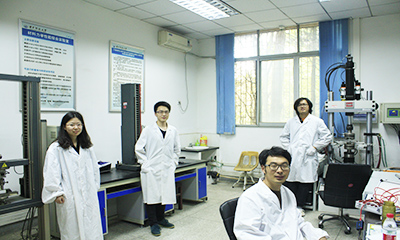
The Department of Mechanics at Huazhong University of Science & Technology was founded in 1978. Before then, it was part of the Department of Mathematics and Mechanics in 1960s. Professor Hao Li, a renowned scientist and educator in mechanics, was the first head of the department. The Department of Mechanics has made significant achievements during the past 30 years. The first post-doctoral research station was established in 1995, and it started to award doctoral degree in 2000. Now both Master's and Doctoral Degrees are awarded in four areas: general mechanics, solid mechanics, fluid mechanics and engineering mechanics respectively, among which, solid mechanics is the key discipline of Hubei province and engineering mechanics was rated as a national featured major in 2008. Besides, the Dept. of Mechanics is where the key laboratory and the mechanics academy council of Hubei locate. In addition, the Department undertakes Journal of Solid Mechanics with its English version Acta Mechanica Solida Sinica, being included in SCI and published worldwide.
There are currently more than 50 faculty and staff members in the department, including 15 professors, more than 20 associate professors and senior engineers. Among them, over 30 passess Doctoral Degrees.
II. Research Areas
1. Theory and methodology for structural safety assessment and structural life assessment
Group members: Chen Jianqiao; Yang Xinhua; Liu Xiaohu; Wang Yuanxun; Li Guoqing; Luo Jun; Zhang Xiong; An Qunli and Wei Junhong
The aim of this area is to reveal the underlying mechanisms of the fatigue, fracture and damage of materials, and develop relevant theories and models; to develop multi safety assessment standards of engineering structures and the integrated reliable lifetime assessment system, including (1) theories and methodologies for the fatigue, fracture and damage of materials. (2) investigation of the structural safety assessment standard and structural lifetime assessment system.
2. Integrated analysis and computational simulation for the safety and reliability of complex structures
Group members: Yang Xinhua; Liu Xiaohu; Li Zhenhuan; Meng Peisheng and Zhang Xiong
This area is focused on investigating the coupling problems of multi-physics fields, such as the thermal and mechanical fields in impact and explosion, developing multi-field and multi-process coupling computation method and technology for data visualization, and computer programing for the complex multi-field and multi-process dynamic coupling problems, including(1)development of computation and simulation softwares for engineering structures(2)Integrated modeling and safety reliability analysis of complex systems
3. Failure mechanism of materials at macro/meso-scales, cross-scale correlation and micro/nano mechanics
Group members: Li Zhenhuan; He Yuming; Yang Xinhua; Li Shaofan; Luo Jun; Huang Minsheng; Chen Yiping; Hu Lili; Yan Zhi; Liu Dabiao and Xiong Qilin
This area is a newly emerging area, including:
(1)Size effects of plastic deformation and damage of materials at micro-scale(2)multi-scale damage mechanics and cross-scale correlation(3)Cross-scale and cross-level computational method and simulation (4)size-dependent static and dynamic behaviors of structures at the micro/nano scale
4. Structural dynamics and failure control
Group members: Hu Yuantai; He Zeng; Ni Qiao; Qian Qin; Wang Lin; Zheng Huiming; Cao Jiguang; Hu Hongping; Zhou Xinping; Zhang Xiong; Jiang Wen; Zhao Gaoyu and Dai Huliang
This area focuses on the multi-field coupling dynamics, including:
(1)Vibration and noise control(2)Structure (solid) - fluid coupling analysis and simulation(3)Coupling dynamics in piezo-energy harvesting system(4)Dynamics of structures and systems at microscale
5. New technology for structural damage detection and the mechanical properties of materials testing
Group members——He Yuming; Kuang Jian; Hu Lili; Liu Dabiao; Ding Huaming and Hu Peng
This area focuses on the experimental measurement of mechanical properties,including:
(1)Characteristics of ultrasonic speckle and the measurement technology(2)dynamic nondestructive testing technology of stress and strain(3)Experimental study of the dynamic response of micro-scale system and size effects of materials at micro-scale
6. Simulation of multi-scale complex fluid system
Group members——Wu Jiankang; Chen Han; Zhou Xinping; Xiong Yongliang; Chen Bo and Wu Jian
Research interests including:
(1)Fluid mechanics in MEMS(2)Heat transfer and energy harvesting in hot fluid system(3)Drag reduction of underwater craft(4)Computational fluid mechanics
III. Hubei Key Laboratory of Engineering Structural Analysis and Safety Assessment
Hubei Key Laboratory of Engineering Structural Analysis and Safety Assessment was founded in 2008. The key laboratory is specialized in the research of structural analysis and safety assessment, which also acts as a training center fpr revelant professionals. It aims to provide theoretical basis and technology support for the identification and rehabilitation of structural accidents, intellectual support for the safety design and structural optimization of engineering structures, and theoretical support and technical services for the reliable lifetime prediction and prolongation of engineering structure. It is a platform for the interdisplinary research of mechanics and related fields.
The main research areas include: the theory and methodology for the structural safety assessment and the lifetime assessment, the integrated analysis and simulation of and safety and reliability of complex structures, macro/micro-scale damage mechanism of materials, multi-scale match and micro/nano-scale mechanics, structural dynamics and failure control, structural damage detection and new technology for structural damage detection and the mechanical properties of materials testing.
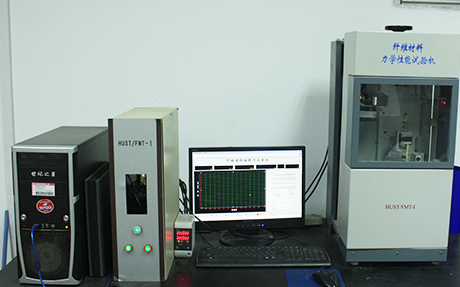
Mechanical property tester at the micro-scale
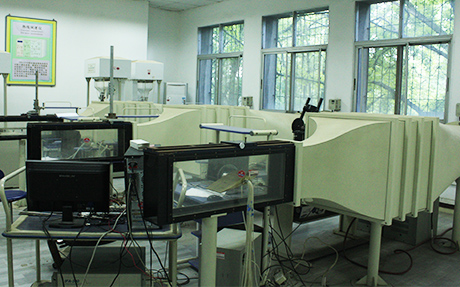
Aerodynamics lab
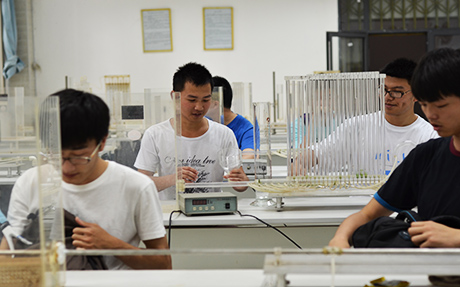
Hydraulic lab
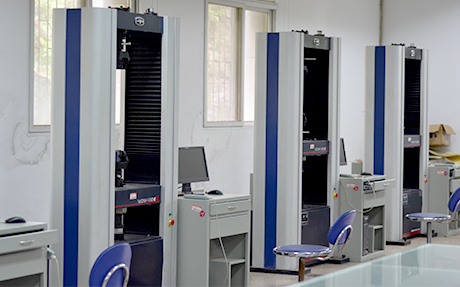
Material tensile test lab
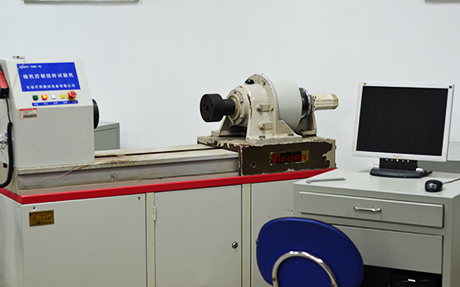
Material torsion test lab
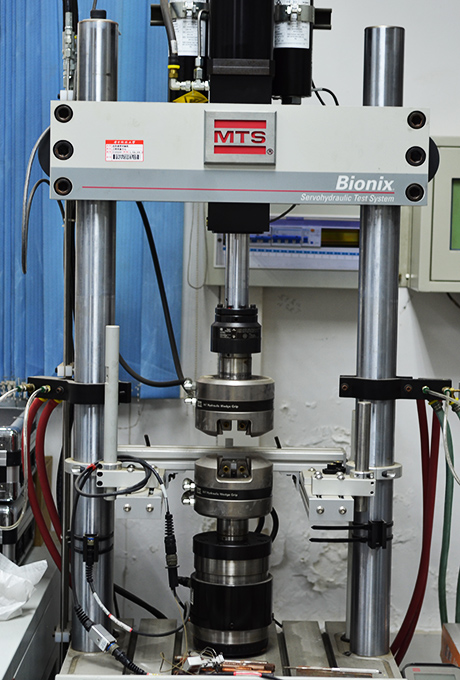
MTS servohydraulic testing machine
